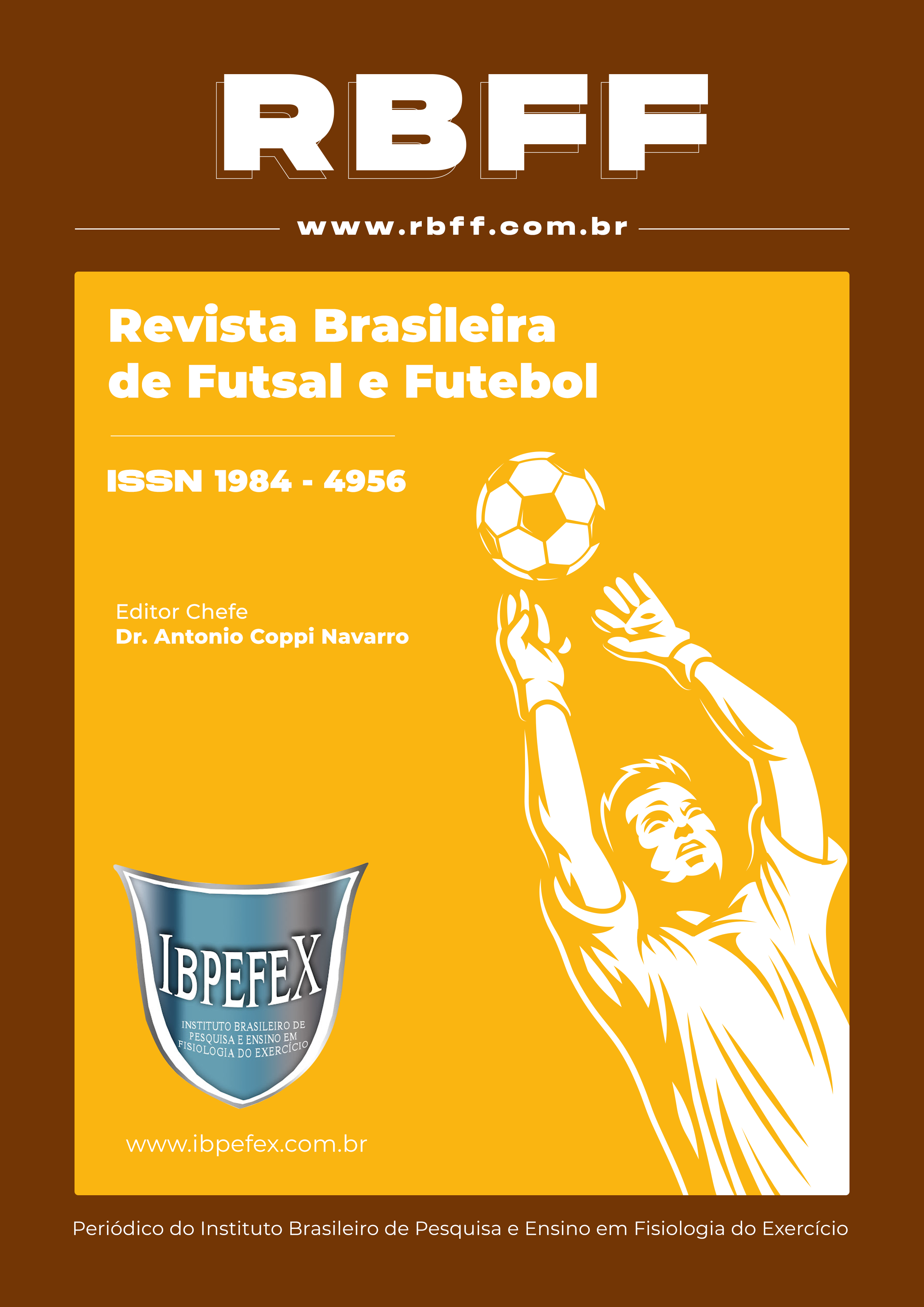Comparison between ex-player coach versus non-ex-player coach in clubs in Series A and B of the Brazilian Championship in the 2012/13, 2016, 2017, 2020/2021 and 2022 bienniums.
Keywords:
Coaches, Football, Brasilian ChampionshipAbstract
The aim of this study was to verify and compare the number of ex-player and non-player coaches in Serie A and B of the Brazilian Championship between the 2012/2013, 2016/2017, 2020/2021 and 2022 biennia. Using a quantitative methodology, data was collected from the websites https://www.cbf.com.br/ and https://www.transfermarkt.com.br/. This shows that Brazilian soccer is going through a transition in terms of the profiles of soccer coaches in the national competitions that comprise the first and second divisions. In 2022, approximately 64% of the coaches were former players and 35% were not former players in the A series. In Serie B, around 61% were ex-players and 38% were not ex-players. The year with the most coaches who were not ex-players in Serie A was 2021 (26), in Serie B 2022 (22), made up of 40 (forty) clubs - 20 (twenty) in each league - each year. It was noted that the number of coaches who have not been professional footballers is increasing, since the number of coaches with this profile has risen considerably in recent years, totaling 36.49% in the last 3 (three) years in the two competitions. Thus, the data indicates an increase in the number of non-ex-player coaches in Brazil's most popular sport, through training and studies carried out in formal learning environments.
References
-Azevedo, C.O.; Almeida, A.T.C.; Brito Ramalho, H.M. Rotatividade de treinadores e o desempenho das equipes de futebol no Brasil. Economia Aplicada. Vol. 25. Num. 1. 2021. p. 5-32.
-Bettega, O.; e colaboradores. Formar o treinador e o jogador nas categorias de base do futebol: engendrando na interação e/ou na especificidade? Movimento. Vol. 25. 2019. e25021. p. 5.
-Fernandes, J.C.P.; e colaboradores. Uma análise do perfil dos treinadores ex-atletas Uma análise do perfil dos treinadores ex-atletas do futebol profissional brasileiro. Esporte e Sociedade. Vol. 22. Num. 8. 2013. p. 1-16.
-Gil, A. C. Como Elaborar Projetos de Pesquisa. 4ª edição. Atlas. 2002
-Linder, F. F. P. O impacto da mudança de treinador no desempenho de uma equipe de futebol no campeonato Brasileiro da Série-A. TCC em Educação Física Bacharelado. Universidade Estadual Paulista-Unesp. Faculdade de Ciências. Bauru. 2023.
-Reis, E.A.; Reis I.A. Análise Descritiva de Dados. Relatório Técnico do Departamento de Estatística da UFMG. 2002
-Ribeiro, C. H. V. Para além do ostracismo no futebol: estudo de caso de um ex-jogador famoso. Arquivos em Movimento. Vol. 6. Num. 1. 2010. p. 81-90.
-Silva, L.F.N.; Prado, H.R.M.; Scaglia, A.J. Competências requeridas ao treinador de futebol: um olhar a partir dos jogadores de futebol. Corpoconsciência. Vol. 22. Num. 1. 2018. p. 24-39.
Downloads
Published
How to Cite
Issue
Section
License
Authors who publish in this journal agree to the following terms:
- Authors retain the copyright and grant the journal the right of first publication, with work simultaneously licensed under the Creative Commons Attribution License BY-NC which allows the sharing of the work with acknowledgment of the authorship of the work and initial publication in this journal.
- Authors are authorized to enter into additional contracts separately for non-exclusive distribution of the version of the work published in this journal (eg, publishing in institutional repository or book chapter), with acknowledgment of authorship and initial publication in this journal.
- Authors are allowed and encouraged to post and distribute their work online (eg, in institutional repositories or on their personal page) at any point before or during the editorial process, as this can bring about productive change as well as increase impact and impact. citation of published work (See The Effect of Free Access).


